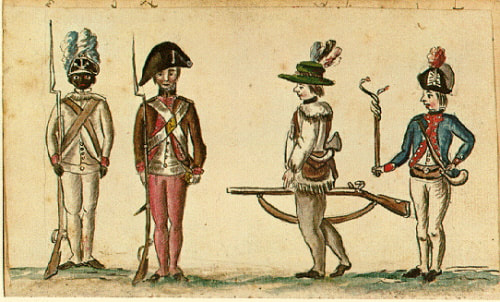|
The 1619 Project, Nikole Hannah-Jones’s account of U.S. history centered on the effects of slavery, has caught the public imagination. Some call it truth at last. Others call it anti-American and introduce bills to forbid its use in schools. For lawmakers to decide historical fact makes as much sense as for churchmen to inform Galileo the sun goes around the earth.
History, like science, pursues knowledge by an established process of uncovering, evaluating, and analyzing evidence. Interpretation goes beyond raw facts. Viewing the past through an unaccustomed lens broadens our understanding. New questions, newfound evidence, and fresh perspectives make it a never-ending process. Whether a primary goal of the American Revolution was to preserve slavery, as Hannah-Jones asserts, is a question of fact, currently contested. Might a teacher use it to introduce historical method, from key documents to a final open-ended debate? PRO: A British jurist ruled in 1772 that a slave brought to England could not be held against his will, making colonial slaveholders fear abolition. CON: The 1772 ruling applied only to Britain; slavery remained entrenched in British-owned Jamaica and Trinidad. PRO: Governor Dunmore of Virginia in late 1775 promised freedom to any slave who fought to put down the rebellion. Many did. CON: Some colonial regiments also promised freedom to all who joined their cause. Dunmore’s promise, designed to harm rebel plantation-owners, did not extend to slaves held by Loyalists. Image: Elleanor Eldridge, Continental Army foot soldiers. An estimated 20,000 African Americans joined the British army; about 9,000, including Eldridge’s father, joined the revolutionaries.
4 Comments
11/15/2021 07:56:26 am
As always, thoughtful information backed up by facts. Thanks for your post and your diligence.
Reply
11/15/2021 02:12:20 pm
Grateful for your encouragement. The factual debates seems like fodder for lessons in critical thinking. An even bigger aspect of the 1619 Project (and perhaps a future post's topic) is how different history looks depending on perspective, and has much in common with viewpoint in fiction. The exact same story comes out very different when you change the viewpoint character.
Reply
Richard Heiberger
11/15/2021 10:01:45 am
Denial https://g.co/kgs/eLYhHJ
Reply
11/15/2021 02:16:04 pm
Fascinating. I guess there's nothing new about basing alleged historical fact on political bias, whether on the left or right. Granted, if such decisions must be made by a branch of government, I'd choose the judiciary over the legislative. In debates over the 1619 Project, I'm not seeing (from left or right) much distinction made between questions of fact and differences of perspective. Similarly, viewing current Israeli policies through differing lenses should be a different matter from denying the factual Holocaust.
Reply
Leave a Reply. |
AuthorI'm a historian who writes novels and literary nonfiction. My home base is Madison, Wisconsin. Archives
July 2024
|

 RSS Feed
RSS Feed